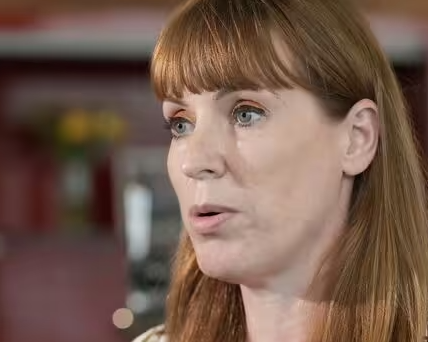Thousands of older people could lose care if independent providers go bust.

Analysis has revealed providers face a devastating bill after tax hikes (Image: Getty)
Labour’s crippling employer national insurance hikes will put social care providers at risk of collapse, analysis reveals.
The Nuffield Trust think tank found that “social care was not so much left out in the cold as pushed right to the edge of a cliff” by the Budget.
The 18,000 organisations that provide adult social care in England face a combined £940million increase in the cost of employer national insurance contributions, it estimated.
Taken together with planned increases to national minimum wage rates, the bill rises to £2.8 billion in the next financial year.
Natasha Curry, deputy director of policy at the Nuffield Trust, said: “Faced with a series of financial black holes in almost every corner of the public sector, the government faced the unenviable task of urgently raising funds at the Budget to plug them.

18,000 independent care providers help to meet demand in England (Image: Getty)
“But by choosing not to provide support to adult social care providers in covering the costs of the raise in ENICs, the result is likely to be catastrophic.”
Six in ten workers employed by the independent social care sector were paid less than the current minimum wage as of March, the Nuffield Trust said.
The hikes will more than wipe out the extra funds allocated to social care in the Budget and will put many providers at risk of going bust, disrupting or stopping care for thousands of older people.
Small and medium-sized organisations are expected to be hit particularly hard and have more limited ability to absorb additional costs.
Most providers will be unable to absorb the costs, so will have to pass the costs on to those who pay for care themselves or ask local authorities to pay higher fees for those who qualify for publicly-funded care.
Ms Curry added: “Already fragile after a decade of cuts, runaway inflation and the effects of Covid-19, adult social care was in desperate need of relief. But this was a Budget that gave with one hand and took away with the other.
“The government rightly wants to reform social care, but with the real prospect of swathes of the social care market collapsing under these extra cost pressures, there may be little left of it to reform unless the government takes urgent action to cover ENICs for adult social care providers.”
Local authorities purchase around 70% of care delivered by independent social care providers, meaning councils would need to find an extra £2 billion if they were to increase the fees they pay to offset these higher costs.
The impact will eclipse both the £600m extra funding allocated to social care (for both children and adults) at the Budget and the effects of an increased local government grant and changes to council tax rates, which are expected to yield around £2bn in total for all council services.
Cllr David Fothergill, chair of the Local Government Authority’s Community Wellbeing Board said councils were already facing severe funding and demand pressures, “meaning finances are under strain like never before”.
He added: “With a vast majority of councils now struggling to balance the books, the costs from National Living Wage and employer National Insurance increases announced in the Budget must be fully funded.
“At its best, adult social care supports adults of all ages to live the life they want to lead. But a range of serious concerns that councils have been raising for years remain and immediate adequate investment is needed in order to address unmet and under-met need and ensure timely access to social care for all who need it.”
A Department of Health and Social Care spokesperson said: “This government inherited a social care system in crisis. We are determined to tackle the significant challenges and build a National Care Service so everybody can access the high-quality care they deserve.
“That’s why we took difficult decisions in the Budget to fix the foundations to restore stability in our public services and we are providing councils with £1.3 billion of new funding for 2025-26, including at least £600 million for social care.
“On top of this, we have allocated an extra £86 million for the Disabled Facilities Grant to bolster support for councils and those with social care needs.”
